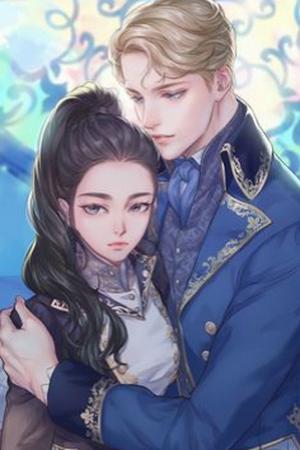Novel Name : Mediterranean Hegemon of Ancient Greece
Mediterranean Hegemon of Ancient Greece Chapter 646: The Princess Wedding (III)
Chapter 646: The Princess Wedding (III)
Following Greek tradition, the man’s relatives and friends must wait in the living room and prepare to welcome the bride. But for the king’s family’s safety, they must prevent them from having too many people. Thus they agreed beforehand that the welcoming group would wait outside the king’s residence.
Hence Patroclus led Cynthia from the living room to the gate. Then the servants and hired workers of Patroclus’ family welcomed her as they stood by the roadside with torches to light the way for the couple and offered their sincere blessings.
After getting out of the house, loud cheers filled Cynthia’s ears.
Through the opaque wedding veil, Cynthia saw the people move around joyfully, saying nice things like ‘both the bride and the groom is beautiful and handsome’. Then the candles brightly lit the open space in front of the mansion.
While receiving their praises, Patroclus led Cynthia to board the quadriga.
Once inside, Cynthia lifted her veil.
Patroclus stared at her beautiful face that was so beautiful that he exclaimed, “Cynthia, you are so beautiful! Much more beautiful than Aphrodite!-”
“Shh, don’t say such things!” Cynthia quickly warned him, as the goddess wasn’t open-minded about such things.
But it still delighted Cynthia, making her hold Patroclus’ hand tightly…
The welcoming group began following the quadriga closely, which immediately formed a long line with people shouting, ‘Let’s depart!’, ‘Move!’ and ‘Take the torch!’ as the quadriga and the group behind it began slowly moving forward.
Then the musicians in the group began playing the flute and the lyre while singing the wedding hymn simultaneously.
Among those who were singing were two special characters: They are Cheiristoya and Agnes; as Cynthia’s two mothers, they naturally want to accompany their daughter through the last part of the road before the wedding. But as the two queens of the kingdom, they were at the forefront of the group and surrounded by royal guards to guarantee their safety.
The two were also holding torches. However, the source of these two torches isn’t simple as they came from the hearth of their home, symbolising their protection of their daughter’s safe transfer from one family and identity to another. Although Hestia, the goddess of the hearth, isn’t one of the twelve main gods, she plays a major role in a family’s life.
Since Patroclus’ home is on the outskirt of Thurii, the welcoming group must first travel eastward from the king’s residence in the western part of the inner area of the city, cross the Nike Square to the east, turn south, cross the Crati River’s Stone Bridge, go out of the southern area of the city, and walk a long way along the river to reach it. Even though this wasn’t a short distance and Cheiristoya and Agnes had never travelled this far recently, they still went on with it to fulfil their responsibilities as a mother.
And since it is a long line of light passing through the city, it was naturally eye-catching. After learning about it, the people of Thurii all came to see them, gave their blessings to the new couple, bowed to the two queens, and began following the procession. By the time they got to the stone bridge, the procession had almost become a night parade of the whole city, showing how much the people deeply love the royal family.
On this evening, the king’s family and the people of Theonia were closely united regardless of their status.
Once the guards informed them that they were near Patroclus’ house, Cheiristoya and Agnes looked at each other, feeling relieved as they massaged their aching legs with their free left hands.
Although the quadriga stopped, the couple didn’t get off yet.
Then the two queens began walking forward.
Patroclus’ house had long been decorated with garlands made of pomegranate, olive and cinnamon trees, as well as colourful flowers. And in front of the house were bunches of lit bonfires, brightly lighting the place.
Patroclus’ mother and other family relatives and friends were waiting at the gate, feeling shocked when they saw the huge sending-off group (Patroclus’ father was invited to the palace for the banquet). Then they hurried to greet the two queens.
Cheiristoya and Agnes then bowed to Patroclus’ mother and smiled to comfort the nervous family members because of Patroclus’ humble background, “We will be family from now on!”
On the other hand, Patroclus’ mother could only say yes as she trembled to raise the torch.
Then Cheiristoya and Agnes lit it with the torch in their hands with serious expressions, which completed the final handover.
The whole process of transmitting the torch is essential in a traditional Greek wedding. Hence there is an old saying in Greece that an illegal marriage is a wedding without a torch. However, newlyweds in Theonia are legal couples after receiving Hera’s blessing and registering at the city hall, and this process is only to respect the tradition.
Patroclus then led Cynthia out of the quadriga.
Despite her veil, Cynthia could still see her two mothers standing by the roadside from the gaps in the fabric.
Then her eyes started to turn red again.
Cheiristoya came to hug her and whispered in her ear, “Remember what I said.”
Cynthia nodded hard as she dared not open her mouth, fearing that she would cry if she spoke.
Agnes also came and hugged her and said, “My child, live a good life with Patroclus! Hera will bless you!.”
Cynthia continues nodding her head.
Patroclus also came forward and bowed to them.
The two queens accepted his bow calmly.
Then Cheiristoya said seriously, “We will hand Cynthia to you; treat her well!”
Patroclus repeatedly said yes and took Cynthia inside the house, surrounded by relatives and friends. They then walked into the kitchen, a symbolic centre of the family.
The guests then threw the nuts they had prepared for the couple.
At the same time, Patroclus’ mother handed Cynthia a date and a cake made of sesame and honey, following the traditions, both of which symbolise having more children.
Cynthia slightly lifted her veil and ate them, which means that she has now become a member of the family.
Amidst the guests’ blessings, Patroclus took Cynthia into the bedroom as he couldn’t wait to pull her to the bed and help her take off her wedding dress.
“Outside…there are still people…outside…” Cynthia said shyly.
“Don’t worry, Sthephilos is outside guarding; no one would dare to come in.”
“Sthephilos? Isn’t he and Giada going to get married soon?” Cynthia asked curiously.
“It’s our wedding day, so why do you care about them?” Along with Cynthia’s cry, Patroclus carried her to the bed…
Outside, their relatives and friends sang the wedding hymn loudly with the loudest tone, working together to scare away the evil spirits.
Soon, the sending-off group outside the house also joined in.
This magnificent singing sounded throughout the night in Thurii…
. . . . . . . . . . . .
While almost the entire city attended the wedding procession of Princess Cynthia of Theonia, the statesmen of the Senate gathered at the palace for a banquet held by King Davos. All of them were present except for the few statesmen who were far away working as praetors and couldn’t get away because of important matters.
Davos had spent his own money and set out nearly a hundred tables, filling the entire palace hall. He then made his son, Crotokatax, the head of the banquet, directing his men and slaves to serve the statesmen well.
As this was the first time Davos hosted a banquet for all statesmen in more than a decade, he took the opportunity to express his gratitude for their efforts over the years on behalf of the kingdom. It was also the first time he allowed his eldest son, Crotokatax, to appear alone in front of the highest officials of the kingdom on such an informal occasion.
Due to Davos’ deliberate arrangement and the statesmen’s flattery, the banquet’s atmosphere was warm and lasted until late at night.
At the banquet, many statesmen were drunk, especially Patroclus’ father, Periandorus. As one of the main characters of the banquet and the only non-statesmen among them, he faced every statesman who came to toast and congratulate him, and he, of course, could not refuse, so he drank alcohol non-stop, and soon he was so drunk that he was vomiting all over the floor.
While with his status, no statesmen dared to force Davos to drink, so he was still sober by the end of the banquet. As for the still underaged Crotokatax, the statesmen were embarrassed to make him drink, so he didn’t touch even a drop of liquor.
After seeing off the guests, Davos walked home with Crotokatax while getting escorted by the royal guards.
The palace and the king’s residence, one at the foot of the hill and the other at the top, are only 80 metres apart, connected by a spacious and smooth road.
This night, the climate was cool as the moon shone brightly with few stars. The slightly drunk Davos walked on the gentle slope of the road and felt comfortable with the river breeze and quiet surroundings.
He turned his head to the side and looked at his son, “Why are you still angry?”
“Father, those drunken Daunians statesmen swore at you crazily! Why aren’t you punishing them harshly?” Crotokatax said angrily.
“Then what do you say I should do? Should I cane them or put them in prison?” Davos smiled and said, “They are drunk; I can forgive the words of the drunk.”
Crotokatax said anxiously, “But I can see their dissatisfaction with you. I am worried that they will treat you…”
“I have the royal guards’ protection and Aristias’ monitoring, and with the whole city of Thurii under my control, what can a few newly subordinated Daunian chieftains do?” Davos smiled as his son’s concern somewhat touched him. He then affectionately patted Crotokatax’s still-tender shoulders and said in a serious tone, “Besides, we have just occupied their lands and taken away their people. Should we not allow them to vent their anger? My son, learn to control yourself, don’t get angry easily as anger will make you lose your mind, and allow others to catch your weakness…” If you find any errors ( broken links, non-standard content, etc.. ), Please let us know so we can fix it as soon as possible.
Following Greek tradition, the man’s relatives and friends must wait in the living room and prepare to welcome the bride. But for the king’s family’s safety, they must prevent them from having too many people. Thus they agreed beforehand that the welcoming group would wait outside the king’s residence.
Hence Patroclus led Cynthia from the living room to the gate. Then the servants and hired workers of Patroclus’ family welcomed her as they stood by the roadside with torches to light the way for the couple and offered their sincere blessings.
After getting out of the house, loud cheers filled Cynthia’s ears.
Through the opaque wedding veil, Cynthia saw the people move around joyfully, saying nice things like ‘both the bride and the groom is beautiful and handsome’. Then the candles brightly lit the open space in front of the mansion.
While receiving their praises, Patroclus led Cynthia to board the quadriga.
Once inside, Cynthia lifted her veil.
Patroclus stared at her beautiful face that was so beautiful that he exclaimed, “Cynthia, you are so beautiful! Much more beautiful than Aphrodite!-”
“Shh, don’t say such things!” Cynthia quickly warned him, as the goddess wasn’t open-minded about such things.
But it still delighted Cynthia, making her hold Patroclus’ hand tightly…
The welcoming group began following the quadriga closely, which immediately formed a long line with people shouting, ‘Let’s depart!’, ‘Move!’ and ‘Take the torch!’ as the quadriga and the group behind it began slowly moving forward.
Then the musicians in the group began playing the flute and the lyre while singing the wedding hymn simultaneously.
Among those who were singing were two special characters: They are Cheiristoya and Agnes; as Cynthia’s two mothers, they naturally want to accompany their daughter through the last part of the road before the wedding. But as the two queens of the kingdom, they were at the forefront of the group and surrounded by royal guards to guarantee their safety.
The two were also holding torches. However, the source of these two torches isn’t simple as they came from the hearth of their home, symbolising their protection of their daughter’s safe transfer from one family and identity to another. Although Hestia, the goddess of the hearth, isn’t one of the twelve main gods, she plays a major role in a family’s life.
Since Patroclus’ home is on the outskirt of Thurii, the welcoming group must first travel eastward from the king’s residence in the western part of the inner area of the city, cross the Nike Square to the east, turn south, cross the Crati River’s Stone Bridge, go out of the southern area of the city, and walk a long way along the river to reach it. Even though this wasn’t a short distance and Cheiristoya and Agnes had never travelled this far recently, they still went on with it to fulfil their responsibilities as a mother.
And since it is a long line of light passing through the city, it was naturally eye-catching. After learning about it, the people of Thurii all came to see them, gave their blessings to the new couple, bowed to the two queens, and began following the procession. By the time they got to the stone bridge, the procession had almost become a night parade of the whole city, showing how much the people deeply love the royal family.
On this evening, the king’s family and the people of Theonia were closely united regardless of their status.
Once the guards informed them that they were near Patroclus’ house, Cheiristoya and Agnes looked at each other, feeling relieved as they massaged their aching legs with their free left hands.
Although the quadriga stopped, the couple didn’t get off yet.
Then the two queens began walking forward.
Patroclus’ house had long been decorated with garlands made of pomegranate, olive and cinnamon trees, as well as colourful flowers. And in front of the house were bunches of lit bonfires, brightly lighting the place.
Patroclus’ mother and other family relatives and friends were waiting at the gate, feeling shocked when they saw the huge sending-off group (Patroclus’ father was invited to the palace for the banquet). Then they hurried to greet the two queens.
Cheiristoya and Agnes then bowed to Patroclus’ mother and smiled to comfort the nervous family members because of Patroclus’ humble background, “We will be family from now on!”
On the other hand, Patroclus’ mother could only say yes as she trembled to raise the torch.
Then Cheiristoya and Agnes lit it with the torch in their hands with serious expressions, which completed the final handover.
The whole process of transmitting the torch is essential in a traditional Greek wedding. Hence there is an old saying in Greece that an illegal marriage is a wedding without a torch. However, newlyweds in Theonia are legal couples after receiving Hera’s blessing and registering at the city hall, and this process is only to respect the tradition.
Patroclus then led Cynthia out of the quadriga.
Despite her veil, Cynthia could still see her two mothers standing by the roadside from the gaps in the fabric.
Then her eyes started to turn red again.
Cheiristoya came to hug her and whispered in her ear, “Remember what I said.”
Cynthia nodded hard as she dared not open her mouth, fearing that she would cry if she spoke.
Agnes also came and hugged her and said, “My child, live a good life with Patroclus! Hera will bless you!.”
Cynthia continues nodding her head.
Patroclus also came forward and bowed to them.
The two queens accepted his bow calmly.
Then Cheiristoya said seriously, “We will hand Cynthia to you; treat her well!”
Patroclus repeatedly said yes and took Cynthia inside the house, surrounded by relatives and friends. They then walked into the kitchen, a symbolic centre of the family.
The guests then threw the nuts they had prepared for the couple.
At the same time, Patroclus’ mother handed Cynthia a date and a cake made of sesame and honey, following the traditions, both of which symbolise having more children.
Cynthia slightly lifted her veil and ate them, which means that she has now become a member of the family.
Amidst the guests’ blessings, Patroclus took Cynthia into the bedroom as he couldn’t wait to pull her to the bed and help her take off her wedding dress.
“Outside…there are still people…outside…” Cynthia said shyly.
“Don’t worry, Sthephilos is outside guarding; no one would dare to come in.”
“Sthephilos? Isn’t he and Giada going to get married soon?” Cynthia asked curiously.
“It’s our wedding day, so why do you care about them?” Along with Cynthia’s cry, Patroclus carried her to the bed…
Outside, their relatives and friends sang the wedding hymn loudly with the loudest tone, working together to scare away the evil spirits.
Soon, the sending-off group outside the house also joined in.
This magnificent singing sounded throughout the night in Thurii…
. . . . . . . . . . . .
While almost the entire city attended the wedding procession of Princess Cynthia of Theonia, the statesmen of the Senate gathered at the palace for a banquet held by King Davos. All of them were present except for the few statesmen who were far away working as praetors and couldn’t get away because of important matters.
Davos had spent his own money and set out nearly a hundred tables, filling the entire palace hall. He then made his son, Crotokatax, the head of the banquet, directing his men and slaves to serve the statesmen well.
As this was the first time Davos hosted a banquet for all statesmen in more than a decade, he took the opportunity to express his gratitude for their efforts over the years on behalf of the kingdom. It was also the first time he allowed his eldest son, Crotokatax, to appear alone in front of the highest officials of the kingdom on such an informal occasion.
Due to Davos’ deliberate arrangement and the statesmen’s flattery, the banquet’s atmosphere was warm and lasted until late at night.
At the banquet, many statesmen were drunk, especially Patroclus’ father, Periandorus. As one of the main characters of the banquet and the only non-statesmen among them, he faced every statesman who came to toast and congratulate him, and he, of course, could not refuse, so he drank alcohol non-stop, and soon he was so drunk that he was vomiting all over the floor.
While with his status, no statesmen dared to force Davos to drink, so he was still sober by the end of the banquet. As for the still underaged Crotokatax, the statesmen were embarrassed to make him drink, so he didn’t touch even a drop of liquor.
After seeing off the guests, Davos walked home with Crotokatax while getting escorted by the royal guards.
The palace and the king’s residence, one at the foot of the hill and the other at the top, are only 80 metres apart, connected by a spacious and smooth road.
This night, the climate was cool as the moon shone brightly with few stars. The slightly drunk Davos walked on the gentle slope of the road and felt comfortable with the river breeze and quiet surroundings.
He turned his head to the side and looked at his son, “Why are you still angry?”
“Father, those drunken Daunians statesmen swore at you crazily! Why aren’t you punishing them harshly?” Crotokatax said angrily.
“Then what do you say I should do? Should I cane them or put them in prison?” Davos smiled and said, “They are drunk; I can forgive the words of the drunk.”
Crotokatax said anxiously, “But I can see their dissatisfaction with you. I am worried that they will treat you…”
“I have the royal guards’ protection and Aristias’ monitoring, and with the whole city of Thurii under my control, what can a few newly subordinated Daunian chieftains do?” Davos smiled as his son’s concern somewhat touched him. He then affectionately patted Crotokatax’s still-tender shoulders and said in a serious tone, “Besides, we have just occupied their lands and taken away their people. Should we not allow them to vent their anger? My son, learn to control yourself, don’t get angry easily as anger will make you lose your mind, and allow others to catch your weakness…” If you find any errors ( broken links, non-standard content, etc.. ), Please let us know so we can fix it as soon as possible.
Rankings

To Cure the Playboy
Hailey Allen
Read To Cure the Playboy by Hailey Allen. Genre: Chinese novels. Read the full novel online for free hereRecovering from
Love Has its Will by Selena Lewis
Selena Lewis
Read Love Has its Will by Selena Lewis by Selena Lewis. Genre: Chinese novels. Read the full novel online for free hereT
World Teacher – Other World Style Education & Agent
Neko Kouichi
A man who was once called the world strongest agent ended up becoming a teacher after his retirement to train the new ge
Undefeated God of War
方想
Youth, is meant to be used to shed sweat under the sun!Youth, is to continuously engage in battles, and secure the win!
My Entire Class Was Summoned to Another World except for Me
サザンテラス
A god of a different world had abruptly appeared in my classroom and semi-forcibly summoned the entire class to his worl
I Stayed At Home For A Century, When I Emerged I Was Invincible
Halfway Breeze
Chu Xuan transmigrated to a fantasy world and became the young master of a powerful family. He was rebuked for misbehavi
I'm the King Of Technology
Lumydee
Chu Yi dies in a car crash and becomes Landon Barn, the illegitimate son of king Barn, ruler of Arcadina. Because his mo
Kiss Me Goodnight, Mrs. CEO!
黛蜜儿
In the middle of the night, looking at the woman in his embrace, he smiled devilishly, “With your discontentment, do y
A Man Like None Other
Unknown
Read A Man Like None Other by . Genre: Chinese novels. Read the full novel online for free here.Jared Chance seethes wit
One Useless Rebirth
不会下棋
He Bai won the lottery, became rich, and reached the pinnacle of life. Then, he inadvertently took a picture of the Film